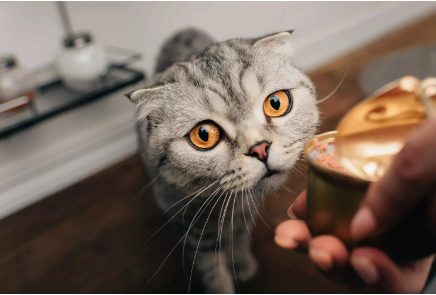Introduction to Coza Animal
Welcome to the fascinating world of Coza animal, where understanding their dietary needs is key to ensuring their health and happiness. These unique creatures have specific nutritional requirements that are vital to their overall well-being. So, let’s dive into the essential nutrients and feeding habits that are crucial for keeping Coza animals thriving!
The Importance of Understanding Dietary Needs
Understanding the dietary needs of Coza animals is crucial for their overall health and well-being. Just like humans, animals require specific nutrients to thrive and function optimally. By providing them with a balanced diet tailored to their species, age, and individual requirements, we can ensure they receive the essential vitamins, minerals, proteins, fats, and carbohydrates necessary for growth and maintenance.
Proper nutrition plays a significant role in preventing various health issues such as obesity, malnutrition, digestive problems, and even behavioural disorders in Coza animal. Each animal has unique dietary requirements that must be met to support their physiological functions adequately. Failing to meet these needs can lead to deficiencies or excesses that may impact their quality of life.
Pet owners or caretakers of Coza animals must educate themselves on what foods suit their specific species. Consulting with a veterinarian or an animal nutritionist can help create a customized diet plan that meets these unique creatures’ nutritional needs. Proper nutrition is not just about filling up a food bowl; it’s about ensuring that every meal contributes positively to your Coza animal’s health and happiness.
Key Nutrients Essential for Coza Animals
Coza animals have specific dietary needs that must be met to ensure their health and well-being. Key nutrients play a crucial role in keeping these unique creatures thriving.
Protein is essential for muscle development and tissue repair in Coza animals. Including high-quality protein sources, such as lean meats or plant-based options like legumes, is vital for their overall health.
Vitamins and minerals are important for Coza animals to maintain proper bodily functions. Vitamin A supports vision and immune function, while calcium promotes strong bones and teeth.
Omega-3 fatty acids benefit Coza animals’ skin and coat health and reduce inflammation. Ensuring they receive a balanced intake of these fatty acids can contribute to their overall wellness.
Water is another critical nutrient that should never be overlooked; it aids in digestion, temperature regulation, and nutrient absorption for Coza animals. Providing access to clean water at all times is key to their hydration needs.
By incorporating these essential nutrients into the diet of Coza animals, you can help support their health and vitality daily.
Factors to Consider in Creating a Balanced Diet for Coza Animals
There are several factors to consider when creating a balanced diet for Coza animals. Understanding the specific nutritional requirements of Coza animals is crucial. Different species may have varying needs for protein, carbohydrates, fats, vitamins, and minerals.
Taking into account the age and life stage of the Coza animal is important. Growing juveniles may require more energy and certain nutrients than adults or seniors.
Additionally, considering any health conditions or special dietary needs t Coza animal may have is essential in formulating a proper diet plan. Some animals might be sensitive to certain ingredients or require supplements to maintain optimal health.
Moreover, it’s vital to provide a variety of foods to ensure a well-rounded diet for Coza animals. Including fresh fruits and vegetables and high-quality proteins can help meet their nutritional needs effectively.
Common Dietary Mistakes to Avoid for Coza Animals
Common dietary mistakes can significantly impact the health and well-being of Coza animals. One common mistake is feeding them human food that may be toxic or harmful to their digestive system. IStickingto a diet specifically designed for Coza animals is important to ensure they receive the proper nutrients.
Another mistake to avoid is overfeeding Coza animals, leading to obesity and related health issues. Monitoring portion sizes and following feeding guidelines are crucial in maintaining optimal weight. Additionally, don’t overlook the importance of always providing fresh water for hydration.
For animals, avoiding relying solely on one type of food may result in nutritional deficiencies. Variety is key to ensuring they receive a balanced diet of essential nutrients. SAvoidgiving treats excessively, as they can lead to an unbalanced diet and potential weight gain.
By being mindful of these common dietary mistakes, you can help promote the overall health and happiness of your beloved Coza animal companion.
Recommended Foods for Coza Animals
When it comes to feeding your Coza animals, it’s essential to provide a well-rounded diet that meets all their nutritional needs. Incorporating various foods into their meals ensures they get the necessary vitamins and minerals for good health.
Fresh fruits and vegetables are excellent options for Coza animals as they offer essential nutrients like vitamin C, fibre, and antioxidants. Some favourites include leafy greens, carrots, apples, and berries.
Whole grains such as oats and quinoa can benefit their diet, providing energy and fibre. These grains also help maintain proper digestion for your Coza animals.
Protein sources like lean meats or plant-based proteins are crucial for muscle development and overall body function. Consider incorporating fish, chicken, beans, or tofu into their meals.
Remember that. Fresh water should always be available to keep your Coza animals hydrated throughout the day. Opting for filtered water is ideal for preventing potential contaminants from affecting their health.
By offering a balanced mix of these recommended foods in moderation, you can ensure that your Coza animals stay healthy and happy in the long run.
Special Considerations for Different Stages of Life in Coza Animals
Coza animals, like all living beings, have specific dietary needs that vary depending on their life stage. When it comes to young cosy animals, such as juveniles or babies, it’s crucial to provide them with a diet rich in protein and essential vitamins for growth and development.
As cosy animals enter adulthood, their nutritional requirements may shift towards maintaining optimal health and energy levels. A balanced diet with the right mix of proteins, carbohydrates, fats, vitamins, and minerals is key during this phase.
In later stages of life, seniors because animals may require special considerations in their diet to support ageing bodies. Foods promoting joint health and cognitive function can benefit elderly cosy animals.
Adjusting animals’ diets based on their life stage ensures they receive the necessary nutrients to thrive at every age. By understanding these special considerations for different stages of life in Coza Animals, we can help them live long and healthy lives!
Conclusion: Providing Proper Nutrition for Healthy and Happy Coza Animals
TP provides rope provider Coza animals to ensure the animal’s happiness. By understanding the dietary needs of Coza animals and incorporating key nutrients into their diet, you can help them thrive at every stage of life. Remember to consider factors like age, activity level, and any special requirements when creating a balanced diet for your Coza animal. Avoid common dietary mistakes and recommend foods catering to their specific nutritional needs.
By prioritizing the well-being of your Coza animal through a nutritious diet, you are promoting physical health and enhancing their quality of life. With proper care and attention to their dietary requirements, you can enjoy many happy years with your beloved Coza companion. Stay informed, stay proactive, and watch your Coza animal flourish under your thoughtful guidance.






